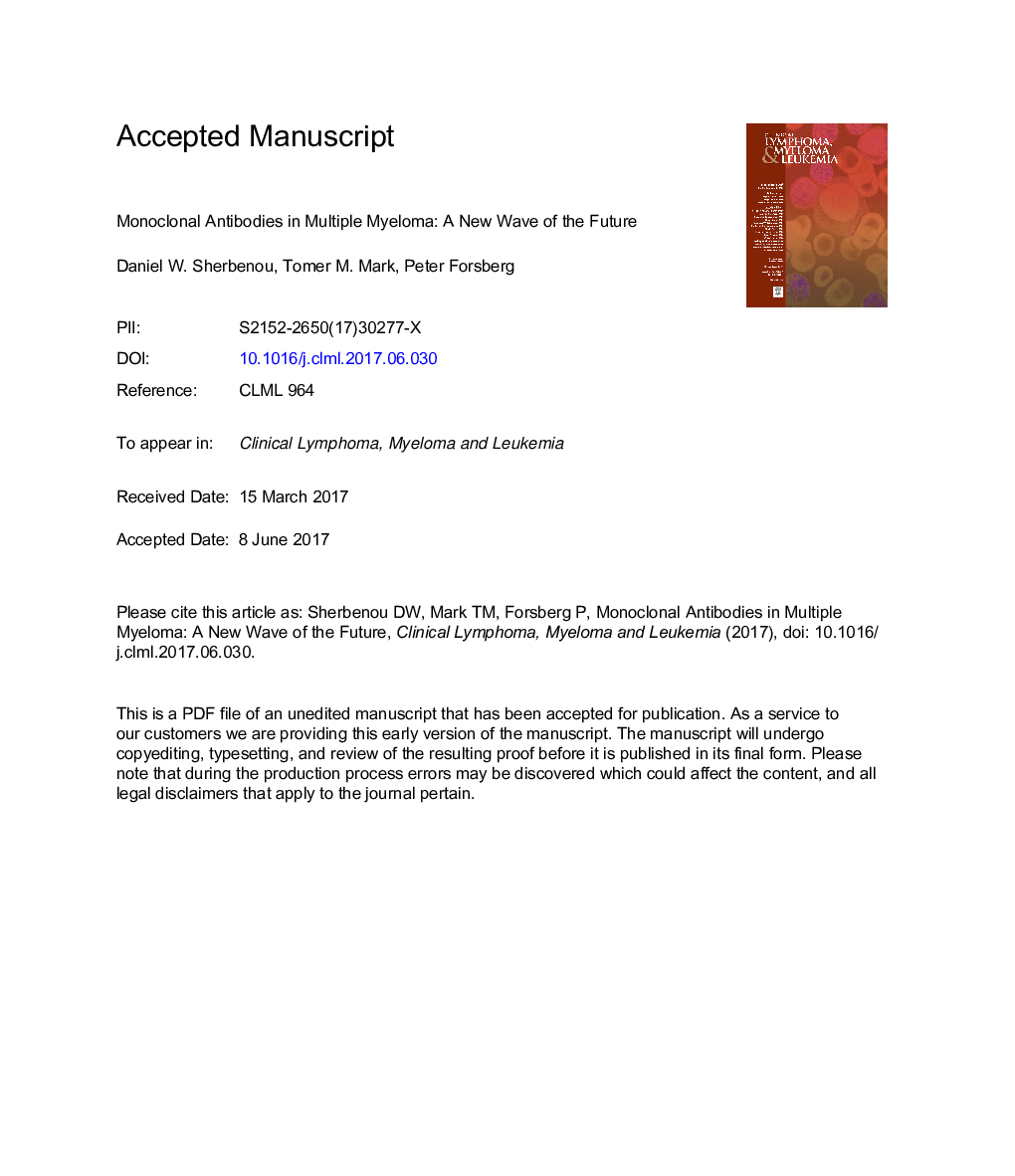| Article ID | Journal | Published Year | Pages | File Type |
|---|---|---|---|---|
| 5581718 | Clinical Lymphoma Myeloma and Leukemia | 2017 | 34 Pages |
Abstract
In 2015, 2 monoclonal antibodies were approved for the treatment of relapsed or refractory multiple myeloma (RRMM), elotuzumab and daratumumab. Elotuzumab is a monoclonal IgG-κ antibody directed against SLAMF7 (signaling lymphocytic activation molecule F7), a cell surface receptor involved in natural killer cell activation. Daratumumab is a monoclonal IgG-κ antibody that binds to CD38, a transmembrane protein found on the surface of myeloma cells and responsible for cellular adhesion and ectoenzymatic activity. Both elotuzumab and daratumumab act through recruitment of the immune system to enhance cellular cytotoxicity directed against myeloma cells. Elotuzumab requires lenalidomide and dexamethasone combined to enhance progression-free survival in patients with RRMM, and daratumumab has both single-agent and combination activity with either lenalidomide or the proteasome inhibitor bortezomib in RRMM. The adverse effect profile of both agents mainly consists of allergic-type infusion reactions. Other considerations for monoclonal antibody use in the treatment of MM include the potential for interference in serum protein electrophoresis testing and cross-reactivity of daratumumab with CD38 present on red blood cells. In the present report, we discussed the clinical development of daratumumab and elotuzumab and newer immunologic approaches to the treatment of MM.
Related Topics
Health Sciences
Medicine and Dentistry
Anesthesiology and Pain Medicine
Authors
Daniel W. Sherbenou, Tomer M. Mark, Peter Forsberg,
